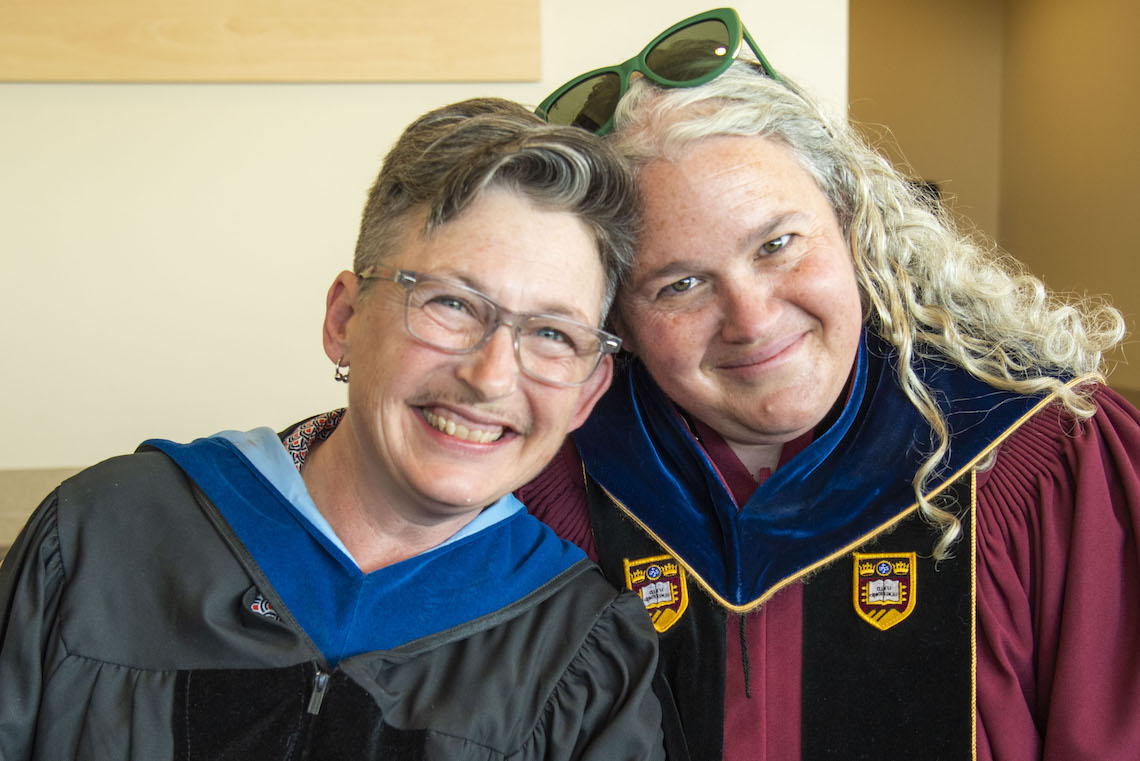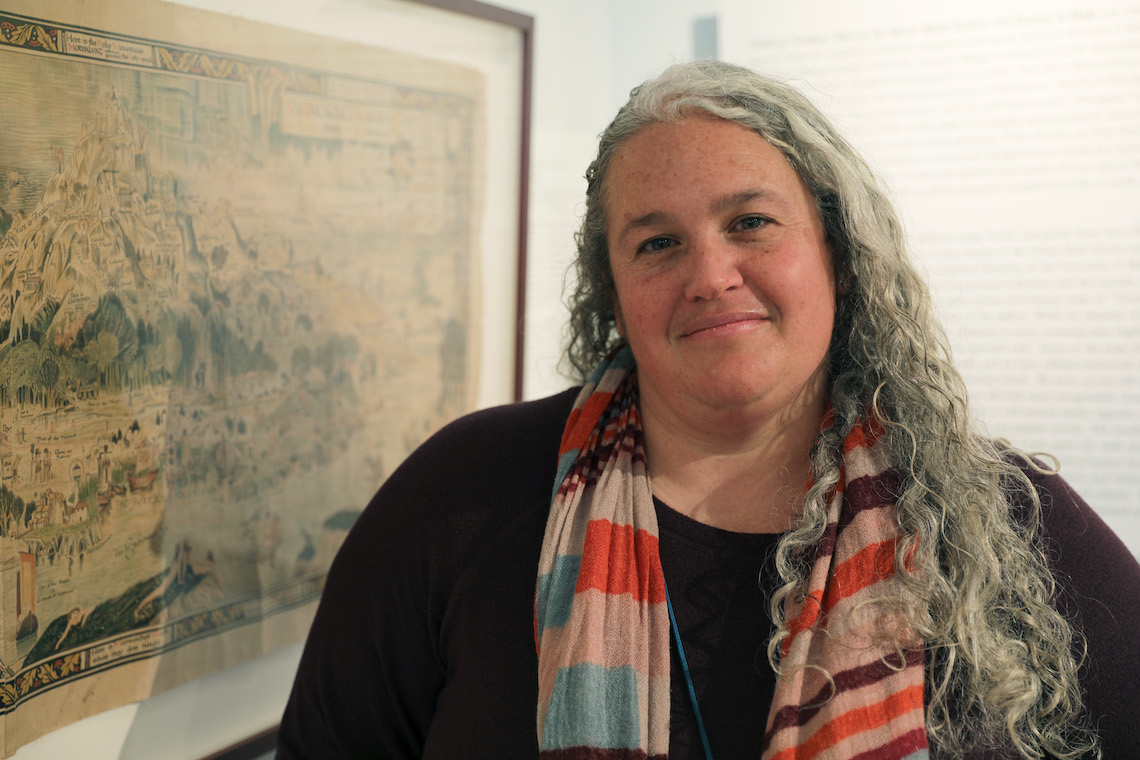In becoming the first University Historian at USM, Dr. Libby Bischof is carving her own niche in the historical record that she is tasked with overseeing.
Over the summer, with the recommendation of the leadership, faculty, and staff of the University of Southern Maine Libraries and Learning Division and the History Department, President Jacqueline Edmondson appointed Bischof to the newly created position. Her work in that capacity is meant to ensure that those who join the campus community are able to learn and contribute to the rich and complex history of USM in the larger context of the lands it occupies in the place now called Maine, the New England region, and beyond. The telling of and reckoning with USM’s past will, it’s hoped, give shape to the community, inform its vision, and work toward the future as the University advances in strategic ways.

Bischof is an accomplished teacher, writer, and public scholar. She is a sought-after Maine historian, and has given keynote speeches and invited lectureships at nearly every historical society and higher education institution in Maine. Her scholarship has set out to answer three fundamental questions: What are the contours of Maine’s past? How have visual artists and artifacts, in particular, represented the history of this place? And how has the state’s cultural history intersected with larger regional, national, and even international phenomena?
While working on a higher scholarly plane, her focus upon objects and regional history makes her work accessible to readers who love their home area, and as a result her work is often highlighted in local and regional magazines, museums, and historical societies. Her first book, “Maine Moderns: Art in Seguinland,” describes how Maine’s landscape and coastline was imagined by high modernist painters and photographers such as Marsden Hartley and Paul Strand. Her second book, “Maine Photography: A History, 1840-2015,” is a history of the intersections between the modern medium of photography and the state’s history, and in particular shows the way the art form imagined Maine’s natural beauty. It also documents the convulsive social and economic changes that have rocked the region since the art form emerged in the 1840s. Both books accompanied exhibits, but in the aftermath of their publication, Bischof gave more than 50 public talks, and dozens more since.
Bischof’s public historical work has reached nearly every cultural institution in the state. Beyond her many lectures, she has filled Maine’s historical societies with adept USM interns, curated major shows at key institutions such as the Portland Museum of Art, been an active supporter of National History Day, which encourages high school and middle school students to study the past, and served as a vital member of various boards. Most notably, she was appointed by the governor to serve on the Commission for the Maine State Museum.

In 2018, Bischof took leave from the USM History Department to become the Executive Director of USM’s Osher Map Library and Smith Center for Cartographic Education. She is relied upon in nearly every segment of the University. As in her other roles, she has gone beyond it, producing and curating traditional and more unconventional exhibits, often with students, including “Where Will We Go From Here?” that invited the public to submit work that helped them understand the impact of the recent pandemic. Next summer, she and her team at the Osher Map Library, with the assistance of valued community partners, will host a prestigious National Endowment for the Humanities K-12 Summer Institute centered around Mapping and New England Maritime Communities that will share with educators from around the country the cartographic treasures of the OML and pedagogical approaches that make them historically meaningful to students of all ages.
As a recognized and powerful voice in our community, Bischof is often found at the forefront of myriad task forces and committees, inciting and driving change. She recently co-chaired the two-year Gloria S. Duclos Convocation centered around Indigenous presence, sovereignty, and resilience, and worked with an active convocation committee dedicated to educating the community and acknowledging the Wabanaki Confederacy through lectures, webinars, field trips, professional development workshops, panel discussions, craft demonstrations and common reads. With Director of Sustainability Aaron Witham, she helped draft USM’s land and sea acknowledgement, which is read before significant campus gatherings, such as Commencement and Opening Breakfast.
With her many accomplishments and contributions to USM, Bischof was deemed an ideal fit for the role of University Historian. A partner of archivists and librarians, and with a commitment to the power of local history to tell global stories, she will continue to inform the USM community about its past, and ensure that the entire community—students, staff, and faculty—have a voice in the telling of their shared story.

